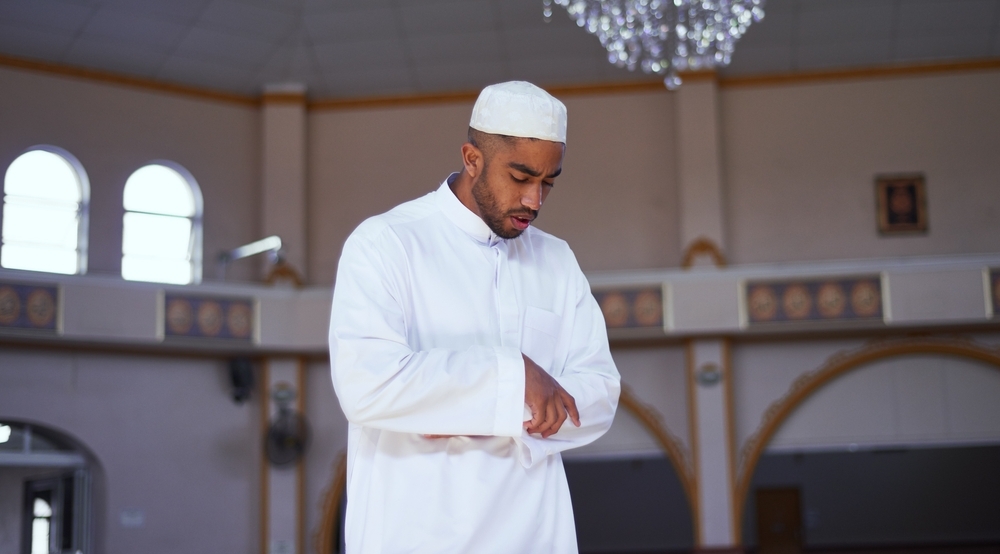Are My Prayers Valid despite My Speech Impediment?
Shafi'i Fiqh
Answered by Shaykh Irshaad Sedick
Question
First, I’d like to thank you for all the good things you’re doing for the Ummah on this website. May Allah bless you all, accept your good deeds, and make everything easy.
I have a severe recurring speech impediment that often comes up in prayer. Sometimes I can recite okay with difficulty, but other times my speech comes out as complete gibberish (no exaggeration), and that’s the best I can do, even if I try to repeat my words repeatedly.
My heart is present and knows the meaning of what I’m saying. However, am I obliged to try to recite the words of the prayer, even if I can only say incomprehensible externally? Are my prayers even valid?
Answer
In the Name of Allah, the Most Merciful and Compassionate. May Allah alleviate our difficulties and guide us to that which is pleasing to Him. Amin. Thank you for your kind words and prayers.
First, your prayers are valid, as you are not accountable for what you have no control over. Allah says: “Allah does not burden a soul beyond that it can bear” [Quran, 2:286]
Obligatory Recitation
The verbal portions of the prayer that is obligatory to be uttered at least to the extent of being able to hear oneself under usual circumstances and hearing ability are the opening Takbir (saying Allahu Akbar), the Fatiha, and the final testification of faith (tashahhud). [Nawawi, Minhaj]
Sunna Recitation
If burdensome, you may omit or silently recite the remaining (Sunna) wording in the prayer. [Nawawi, Majmu’]
Leading the Prayer
If you did everything in your ability to eschew the mistakes in reciting during the prayer, there would be no harm or blame on you after that. However, we advise you not to lead people in prayer unless you feel capable of avoiding the mistakes in recitation or stuttering to respect the status of the Imam (who leads people in prayer) and to relieve yourself of hardship or blame as well. [Nawawi, Majmu’]
A Blessing and a Test
However, if your case of stuttering is innate, you should not feel sad because of that and do not think badly of it; since there were great Muslim scholars of our righteous predecessors who suffered from the same speech problem, and it did not degrade their status by any means, and Allah knows best.
When Allah tests a believer with a physical challenge, their sins are forgiven, and their rank increases. Therefore, anyone with a dis- or limited ability should bear it with patience, as best they can, and Allah will reward them.
I pray this is of benefit and that Allah guides us all.
[Shaykh] Irshaad Sedick
Checked and Approved by Shaykh Faraz Rabbani
Shaykh Irshaad Sedick was raised in South Africa in a traditional Muslim family. He graduated from Dar al-Ulum al-Arabiyyah al-Islamiyyah in Strand, Western Cape, under the guidance of the late world-renowned scholar, Shaykh Taha Karaan.
Shaykh Irshaad received Ijaza from many luminaries of the Islamic world, including Shaykh Taha Karaan, Mawlana Yusuf Karaan, and Mawlana Abdul Hafeez Makki, among others.
He is the author of the text “The Musnad of Ahmad ibn Hanbal: A Hujjah or not?” He has served as the Director of the Discover Islam Centre and Al Jeem Foundation. For the last five years till present, he has served as the Khatib of Masjid Ar-Rashideen, Mowbray, Cape Town.
Shaykh Irshaad has thirteen years of teaching experience at some of the leading Islamic institutes in Cape Town). He is currently building an Islamic online learning and media platform called ‘Isnad Academy’ and has completed his Master’s degree in the study of Islam at the University of Johannesburg. He has a keen interest in healthy living and fitness.
